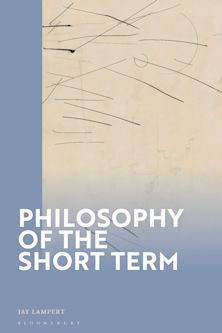This product is usually dispatched within 1 week
- Delivery and returns info
-
Free CA delivery on orders $40 or over
Description
Social robots are an increasingly integral part of society, already appearing as customer service assistants, care-home helpers, teaching assistants and personal companions. This book argues that the wider inclusion of social robots in our society is having a revolutionary impact on some of our key intuitions regarding ethics, metaphysics and epistemology and, as such, will put pressure on many of our best theories.
Social robots elicit an emotional and social response in humans that some have taken to be evidence that robots deserve moral consideration. Others have argued that, as robots are only machines, we should avoid designing robots that encourage emotional engagement. The fictional dualism model provides a new way for us to view social robots and a new route for our continued relationship with them. When we engage with a social robot, we create a fictional overlay that has wants, needs and desires. Our emotional attachment to social robots is a natural continuation of our relationship to fiction: a life-enhancing and important connection, but not one that prompts moral consideration for the fictional entity.
In this book, Paula Sweeney shows how the fictional dualism model of social robots differs from other popular models. In addition to providing a distinctive and ethically appropriate framework for emotional engagement without moral consideration, the model provides conditions for trusting social robots and, uniquely, allows us to individuate social robots as distinct persons, even in contexts in which they share a collective mind.
Table of Contents
Chapter 1. What Can Philosophy Teach Us About Social Robots?
Chapter 2. Humans and Robots
Chapter 3. Social Robots and Moral Consideration
Chapter 4. The Fictional Dualism Model of Social Robots
Chapter 5. Robots and Identity
Chapter 6. Trusting Social Robots
Chapter 7. Robot Right and Indirect Harms
Conclusion
Bibliography
Index
About the Author
Product details
| Published | Dec 06 2023 |
|---|---|
| Format | Hardback |
| Edition | 1st |
| Extent | 152 |
| ISBN | 9781538185025 |
| Imprint | Rowman & Littlefield |
| Dimensions | 236 x 157 mm |
| Series | Philosophy, Technology and Society |
| Publisher | Bloomsbury Publishing |
Reviews

ONLINE RESOURCES
Bloomsbury Collections
This book is available on Bloomsbury Collections where your library has access.



































